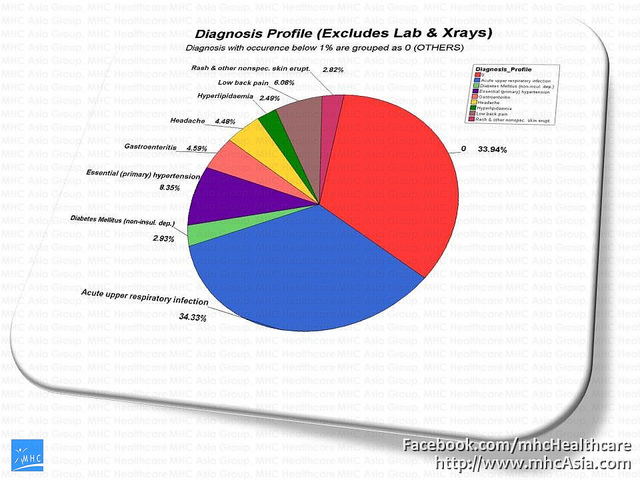There are many reasons why workers' compensation managed care is so difficult, ranging from general economic cost pressures to the regulatory complexities faced by many large employers with multi-state work locations. Issues such as the ability to direct medical care, fee schedules, dispute resolution and the use of treatment protocols and provider networks vary from state to state.
Workers' comp medical costs have continued to outpace overall medical inflation for years. Twenty years ago, the typical ratio was 60/40 indemnity costs (lost-wages benefits) to medical costs. Today, that ratio has reversed.
Furthermore, workers' comp has always been susceptible to considerable cost-shifting both by injured workers and medical providers. Many injured workers without health insurance or with limited coverage have been suspected of submitting claims under workers comp to receive 100% "first dollar" coverage with no co-pays or deductibles. This is often known as the "Monday Morning Syndrome" -- weekend injuries from recreational activities get reported first thing Monday morning as "work-related." The support for this theory is that for years it was documented that the No. 1 time of reported injuries is between 9 and 10 Monday morning. In addition, if an injury or illness is reported as work-related the employee may be entitled to lost-wage replacement benefits, which results in a double incentive.
Medical providers also historically have had an incentive to shift costs to workers' comp. The best example are HMOs financed by pre-paid capitated rates for group health benefits. Work-related injuries are not included in group health plan coverage, allowing HMOs to bill additional charges on a fee-for-service basis. My former HMO had a large sign at the registration desk that read, "Please let us know if your medical care is work-related."
I was once hired by a major defense contractor during a competitive bid process and was told that all the other consultants had recommended it run its workers' comp program through its HMOs. My response was, "That is the last thing you want to do." The risk manager had a big smile on his face.
Many people in the industry were hoping that the ACA and the goal of universal coverage would eliminate the incentive for cost-shifting in workers' comp. In theory, that may be true. In reality, the ACA may have limited impact or, worse, actually create more incentives for cost-shifting.
The ACA has no direct impact because the various federal mandates for health insurance do not apply to workers' comp laws. Unlike Clinton-era health reform efforts, the ACA did not attempt to roll workers' comp into "one big program."
The ACA may exacerbate cost-shifting if health coverage costs will rise significantly for both employers and employees, which is widely predicted. The ACA premium rating factors virtually eliminate experience rating in favor of community rating for small employers, which helps pay for the added costs and mandated benefits. This will significantly drive up costs for many employers, with estimates as high as 50% above normal yearly premium increases.
Employees are also faced with the prospect of narrower networks and increased incentive to cost-shift, including the growing trend of consumer-driven health plans with high deductibles and other out-of-pocket costs.
Medical providers under intense cost pressures under the ACA may very well continue to cost-shift to the state workers' compensation systems and "first dollar" coverage to increase revenues. I fear that the high hopes that the ACA will help eliminate cost-shifting may go the way of "if you like your current health plan you can keep it."
One prominent proponent of the ACA just predicted that 80% of employers will actually eliminate company-paid health benefits by 2018 in favor of directing employees to the state exchanges because paying the $2,000 fine under the ACA for not providing health coverage will be cheaper than providing coverage.
Workers' compensation managed care is far more complex than managed care in group health benefits for many reasons, including; 50 different state laws and jurisdictional requirements, cost-shifting, fraud and abuse, overutilization of unnecessary or even harmful health services, excessive litigation and friction costs, historical animosities between labor and management, bureaucratic state agencies and an insurance industry and claim administrators who get a grade of C+ from many industry analysts.
If employers think the answers in containing workers' comp medical costs are in Washington, D.C., or the various state capitals in which they operate, they need to think again. The answer is in the mirror. Many employers are still searching for the cheapest claims administrator and not the best. Remember that "you get what you pay for."
The same goes for the overwhelming popular use of PPO "discount arrangements." If employers think they are saving money by looking for the cheapest doctor in town they couldn't be more misguided. The treating physician plays a key role in diagnosis and treatment, helps determine causation, degree of impairment and the length of disability and return-to-work. Family physicians and other primary care providers are rarely trained in occupational medicine or workers' comp laws and requirements and are notorious for granting indiscriminate time off work.
Employers must take a much more active role and provide the best and most appropriate medical care for sick and injured workers from the moment of injury or illness and establish better real-time communications between injured workers, medical providers, work supervisors and insurance companies and claims administrators.
Unfortunately, there is no magic bullet. But there is a rule of thumb: Do not even discuss medical cost containment with outside vendors or consultants who recommend broad-based group health networks and strategies. They simply do not apply to workers' comp and will do nothing but hurt an employer's ability to address the real cost drivers and complexities of state workers' comp laws, requirements and systems.








